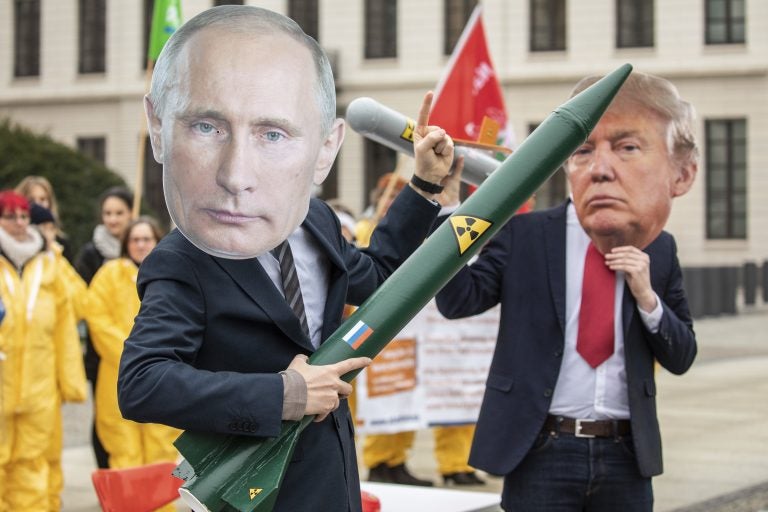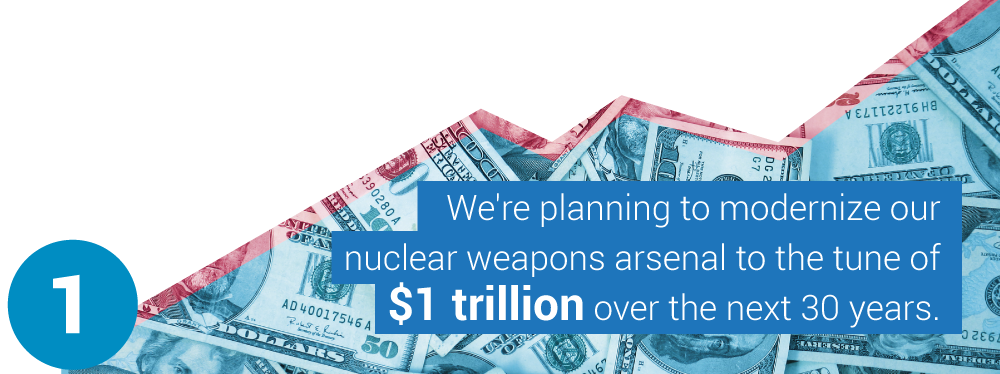
Pandemic May Force a Rethink of Priorities for Costly Arms
(May 13, 2020) — A new ICAN report shows that in 2019, the world spent about $73 billion on nuclear weapons. The US spent roughly half of that by themselves, at over $35 billion. This is an increase of over $7 billion from 2018.
With focus shifting to the coronavirus pandemic, spending billions of dollars on nuclear weapons likely is going to make less and less sense going forward, with nations all having budget consequences from the pandemic.
The expectation, with the US and Russia not likely to extend New START, was that there would be increased spending going forward. Budget deficits are likely to force a rethink, on the futility of buying expensive nuclear arms.
No nuclear weapons use in generations means this money is going into a black hole, and US talk of making low-yield nukes with more utility seem unrealistic. This means billions that could be better spent on almost anything, and in the Covid-19 era, no shortage of things to spend it on.
The Pentagon already says it expects its expenses, particularly weapons programs, to come under growing scrutiny, and other nations will probably face the exact same thing. This will certainly put pressure on nations to justify these nuclear expenses.
While it may be years to fully realize, the pandemic may have a positive effect on disarmament internationally, as there is just no justification for spending billions on weapons of mass destruction in an era when people are dying by the thousand to the virus.

Russia Says US Shows No Readiness to Extend Key Nuclear Pact
(May 14, 2020) — Russia said it’s received no indications the US is ready to roll over the landmark nuclear-reduction treaty New START, which limits their strategic arsenals, before it expires in February.
“We still have not received any signals from Washington that could indicate a willingness to extend New START after it expires,” Deputy Foreign Minister Sergei Ryabkov said on Thursday at an online round-table hosted by the Valdai discussion club. “We believe this agreement is necessary not only for the countries which signed it but as a safeguard of strategic stability.”
The administration of US President Donald Trump has so far rebuffed Russian calls to begin talks on extending the agreement, reiterating that any new accord should include China, which has so far refused to accept limits on its smaller nuclear capability.
The 10-year treaty, the last one capping the nuclear forces of the former Cold War foes, has an option to renew for a further five years with the agreement of both parties.
Russia is willing to negotiate a new arms control accord but this will take time, which extending New START would provide, said Ryabkov.
Fears have been growing of a renewed arms race since the US last year pulled out of a 1987 treaty which banned the deployment of intermediate-range missiles in Europe, citing violations denied by Russia.
With a second strategic arms pact due to expire within a matter of months, this risks destroying decades of arms control efforts.
Under New START, which followed from the 1991 START treaty and was signed in 2010, the Russian and US arsenals are restricted to no more than 1,550 deployed strategic warheads on no more than 700 deployed strategic missiles and bombers. Each side can inspect the other’s arsenals 18 times a year.
Posted in accordance with Title 17, Section 107, US Code, for noncommercial, educational purposes.